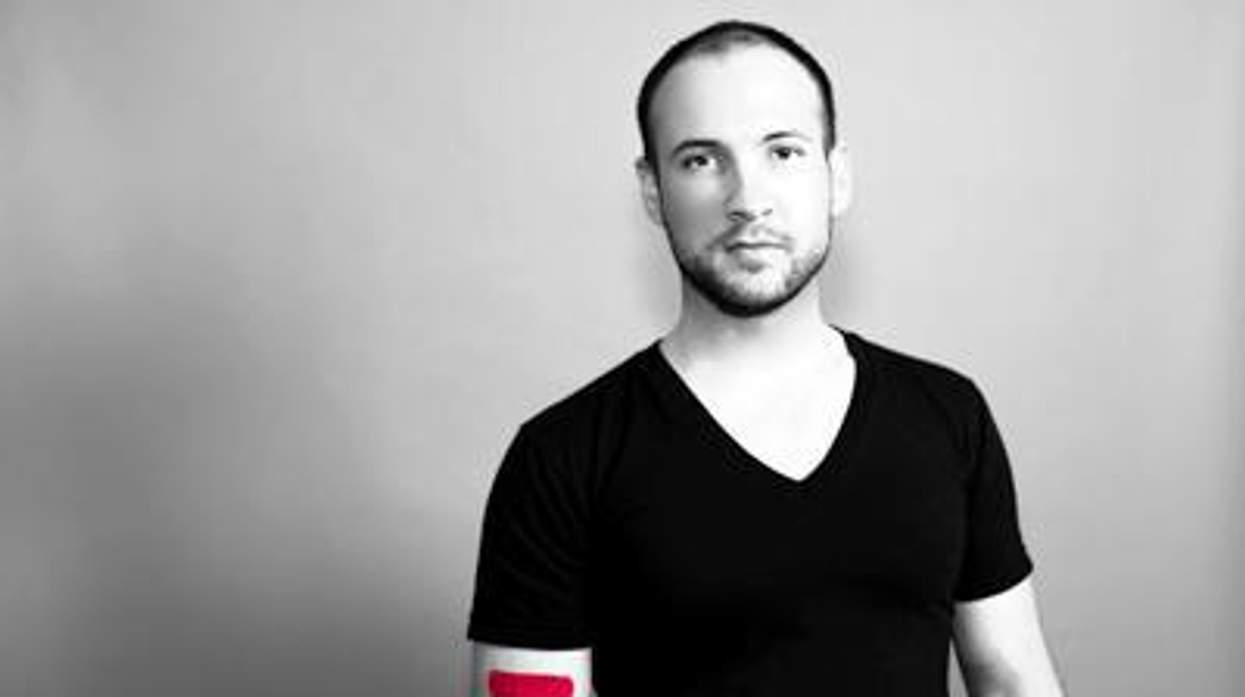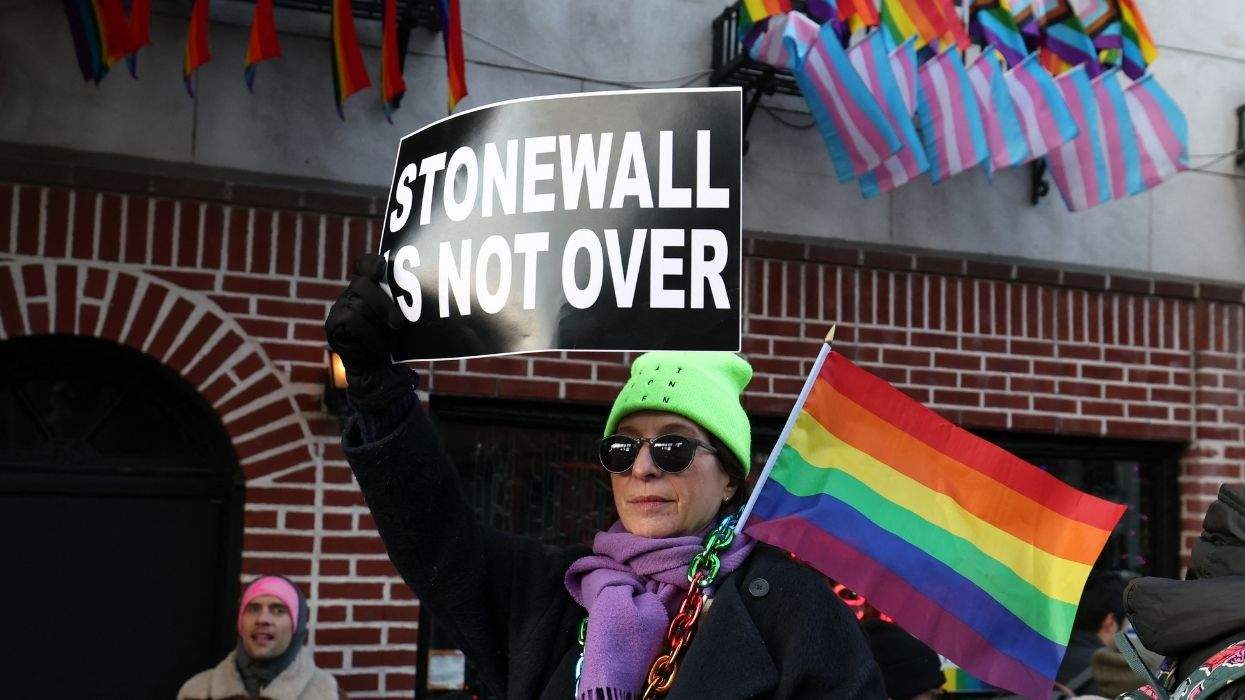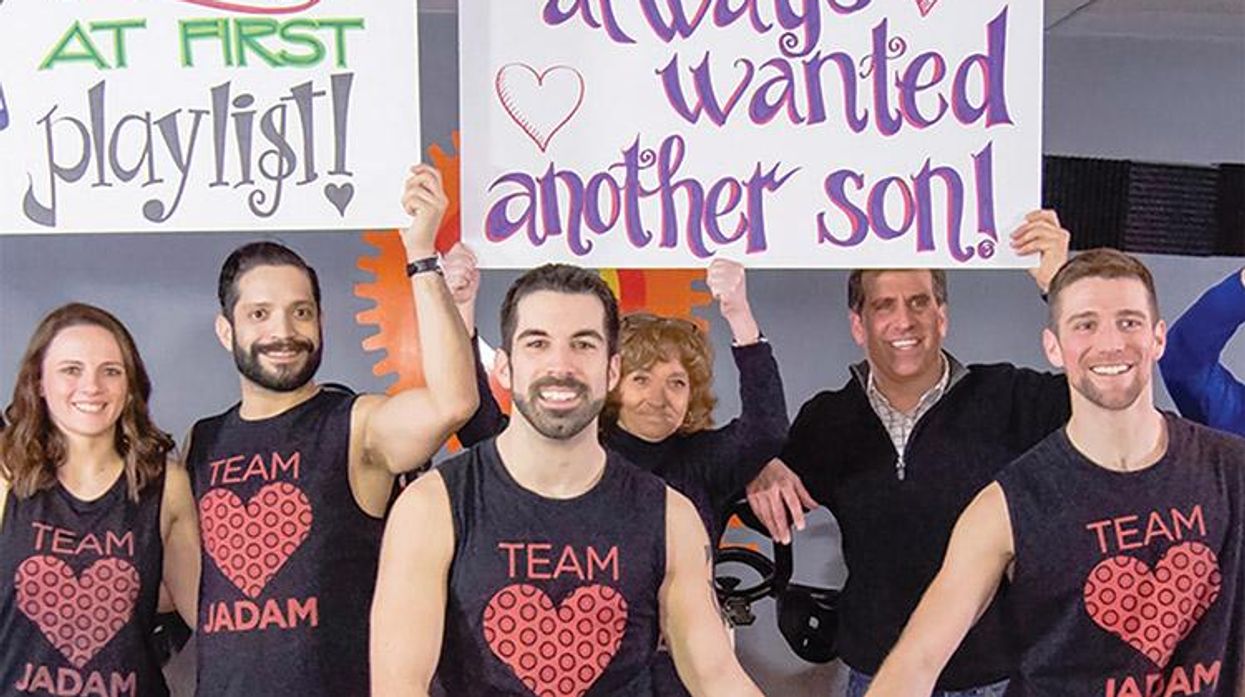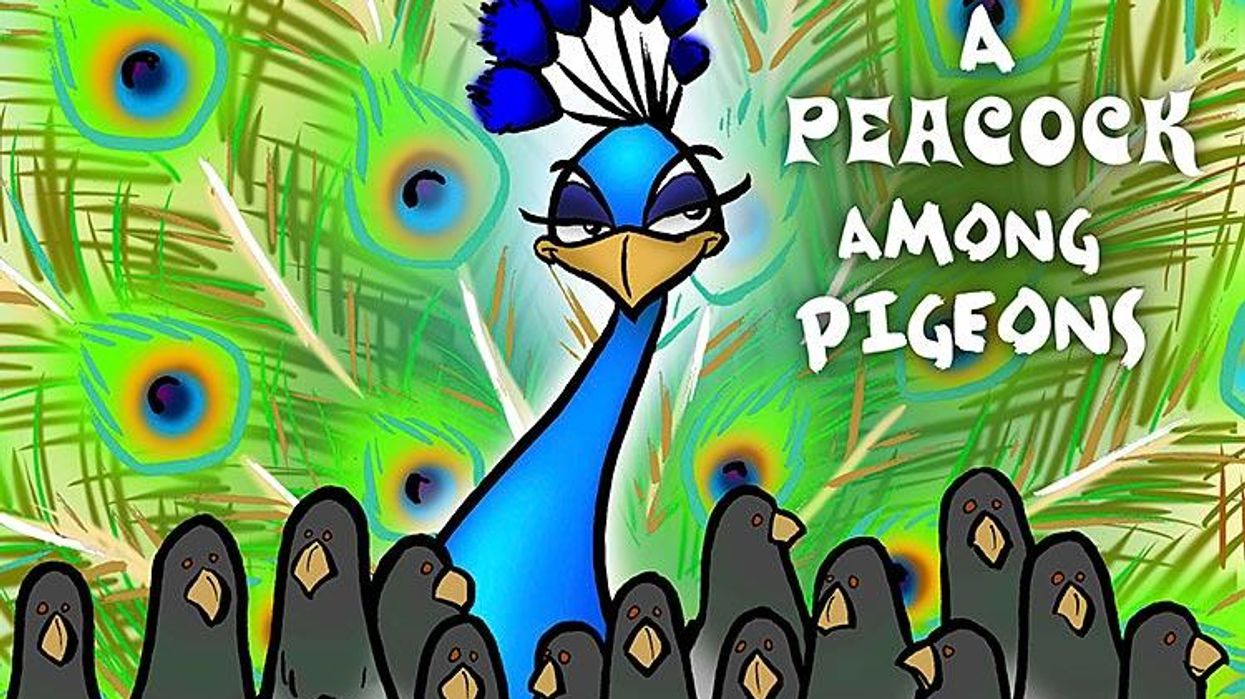To a certain type of gay man, the thought of dating someone who is openly HIV positive can feel like social suicide. They certainly aren't the best version of our culture, but any homosexual can attest to the reality of some sects of our society who view people's HIV status like designer labels. When it comes to a negative man choosing to date someone who is positive, they may run the risk of someone confusing their Prada suit in a Banana Republic bag. But Joshua Stearns knew that rumors didn't transmit the virus and that the potential for a loving relationship with Andrew was worth a few whispers over a mismatched label.
Joshua and Andrew began their relationship in 2008 over casual coffee, a shared workout, and the occasional frozen yogurt. In the beginning, they were nothing more than friends. Joshua knew about Andrew's HIV status from the start, as it was already widely spread throughout Dallas's gay landscape. However, a person's medicine cabinet was never of any interest to Joshua and their friendship continued to grow. Andrew was sweet, honest, and relatively unaffected by the opinions of others. After two years, the combination of these traits and a surprise visit by Andrew to Joshua's hometown in Pennsylvania took things from friendship to romance.
Unlike their initial friendship, Joshua and Andrew's romantic relationship progressed at a feverish pace. It wasn't long before they were living together and planning their future as a pair. They had developed such a sturdy bond in their friendship that the piece of a partnership that take months for others only took days for them. And in some ways, Joshua credits their swift slide into domestic bliss to their mismatched statuses.
"Because I already knew he was positive, our relationship was always healthy and responsible," Joshua said. "I think that sometimes, dating someone who is a different status than you can help create a foundation of trust and understanding."
Unfortunately, sometimes relationships fall apart no matter how strong the communication may be. After about a year together, Joshua and Andrew eventually parted ways. For most people, the anguish that comes from a losing someone you loved is worst part of a break-up. But Joshua's story is just a little more complicated.
HIV stigma doesn't only affect those carrying the virus. A stigma is an unwanted branding mark that is placed upon you. And the gay community is quick to place it on anyone who deviates from the boundaries of pluses and minuses.
Joshua is HIV-negative. He followed his heart and, as a result, fell in love and had a decent run with a man who happened to be HIV-positive. During their relationship, both were protected by the confines of their bond. Post break-up, however, people began to speculate if Joshua's negative label was nothing but a fake.
"It all came after the relationship. People left me alone as long as I was with someone. But when I became single, I constantly heard 'I heard you were positive. Are you clean? Have you been tested?' I still hear it to this day."
Unexpectedly, Joshua was faced with the same fear that plagues every openly HIV-positive single gay man. Every time someone struck his interest, he was terrified that they would reject him because of the gossip that was surrounding his status. This is only one facet of stigma that besets most HIV-positive men. Often, positive men are so wrought with shame and guilt that they learn to live with the fear of stigma instead of fighting against it. But Joshua was happy that he met Andrew, even though their relationship didn't work out. And more so, he was outraged by the venomous prejudice that those in his own community placed on himself and others who weren't afraid of looking past the labels we carry.
The Needle Prick Project was beginning to attract attention to the discussion of HIV stigma and the realities associated with the disease. Several people had taken photos for the "Get Pricked" campaign; a visual project meant to illicit a new conversation on HIV, regardless of status.
Joshua was inspired to take part in the project, given his own experience with HIV stigma. He began to share the string of "Needle Prick" articles on his Facebook page and had his photograph taken with the red Band-Aid, symbolizing the pledge to a conversation about HIV. To him, the photo represented a commitment to eradicating the misplaced fears that perpetuated so much hurt in the gay community. But to others, his involvement in the project was the confirmation that they had been looking for. Many people believed that Joshua was finally "out" about his presumed HIV-positive status.
"Several people came up to me and asked why I didn't tell them I was positive in the first place," Joshua said. "They thought I had been hiding it all along just because I was a part of an HIV awareness project."
Those who believed that he was HIV-negative questioned his reasoning for taking part in the project. They believed that the campaign was somehow irrelevant to him and only made him look positive. But those that think that there is a clear and visible division between positive and negative men are the ones who place themselves the most at risk.
Luckily for Joshua and the other HIV-negative people who had their red Band-Aid photograph taken, you cannot be infected with HIV from taking a picture.
His experience with stigma, however, led Joshua to a better understanding of himself and an ability to recognize assumptions as just that. He isn't scared of becoming HIV positive because he was shed the fear that leads so many to avoid the topic all together.
"I'm not scared to date someone because of their HIV status and I won't let what other people think get in the way of finding someone special," Joshua said. "In fact, I am dating someone now who is HIV positive and I really like him. In the beginning, I think he was interested in me because he was worried I wouldn't like him because of it. It drives me crazy, because I would never rule a possibly great love out because of something like that."
Joshua Stearns is an example of how HIV stigma impacts us all; regardless of the label you wear. Not only did he suffer from the assumptions made by those around him, but he also witnessed how the stigma, stemming from fear, can infect an entire community. Still, he remains undeterred by the whispers about his dating decisions. Instead, he chooses to focus on the quality of the material and not the perception of the brand.
Joshua continues to play an active role in The Needle Prick Project. He recognizes that, in order to make headway in the fight against HIV, it is going to take the efforts of everyone that is affected by disease... and that is all of us.
Just like any shot, we fear the prick of the needle. But a conversation about what it means to be HIV positive today is just the medicine we need.
Get Pricked. Joshua Stearns did.
TYLER CURRY created the Needle Prick Project as an editorial and visual campaign to elicit a candid and open conversation on what it means to be HIV-positive today. To learn more about The Needle Prick Project, visit www.facebook.com/getpricked or follow Tyler Curry on twitter at @iamtylercurry.















Charlie Kirk DID say stoning gay people was the 'perfect law' — and these other heinous quotes
These are some of his worst comments about LGBTQ+ people made by Charlie Kirk.